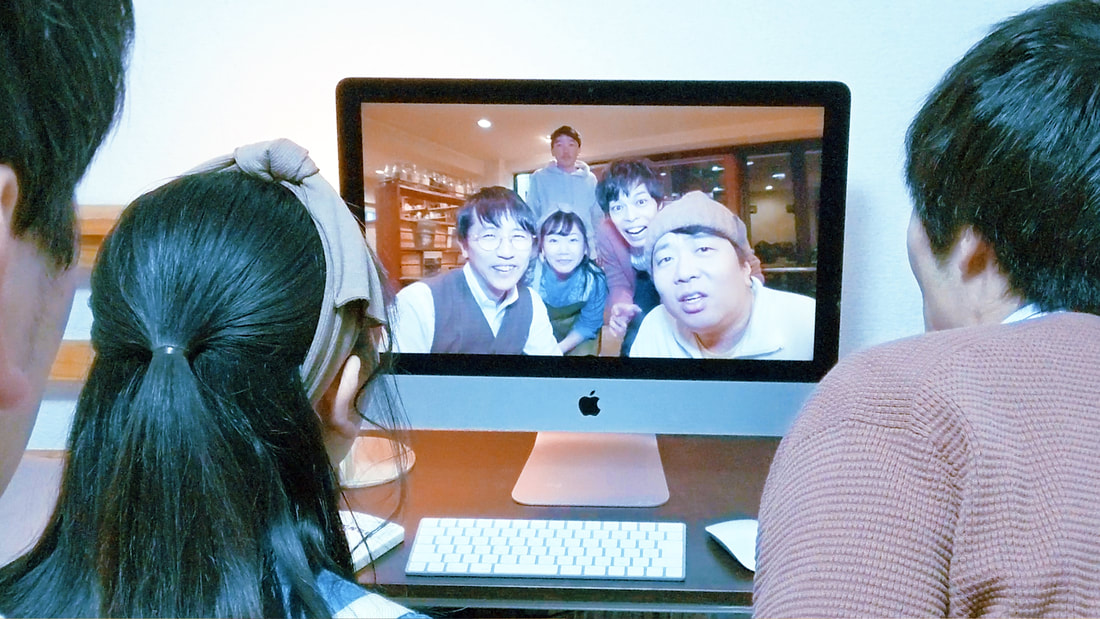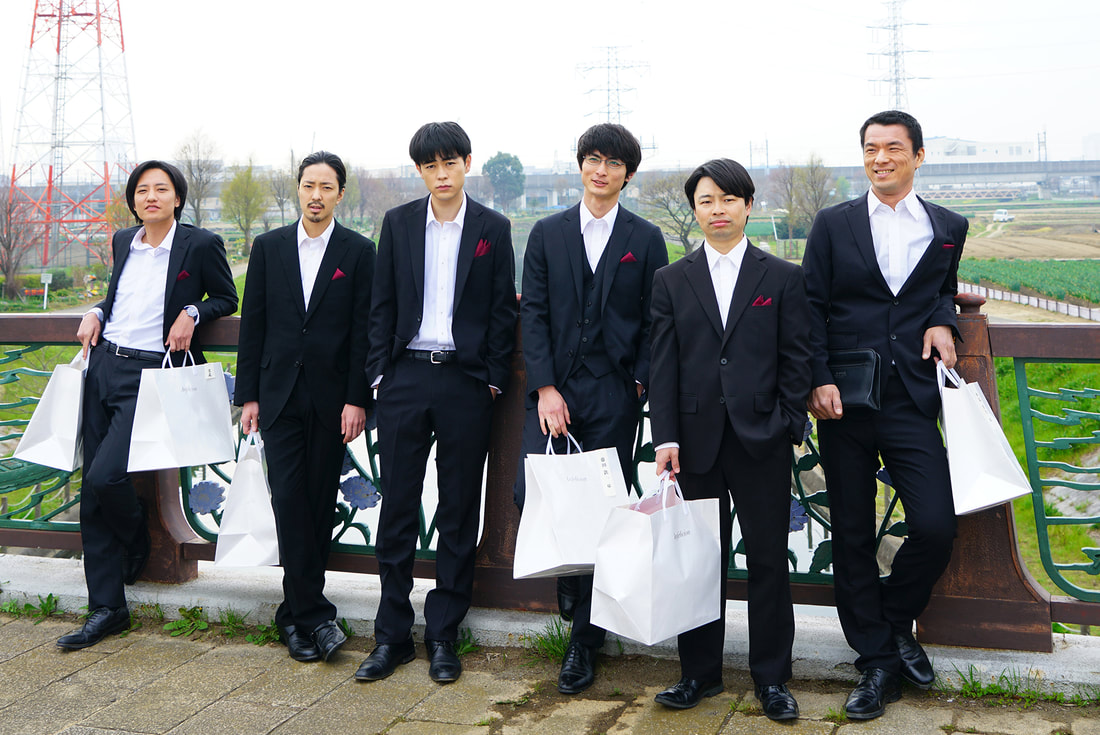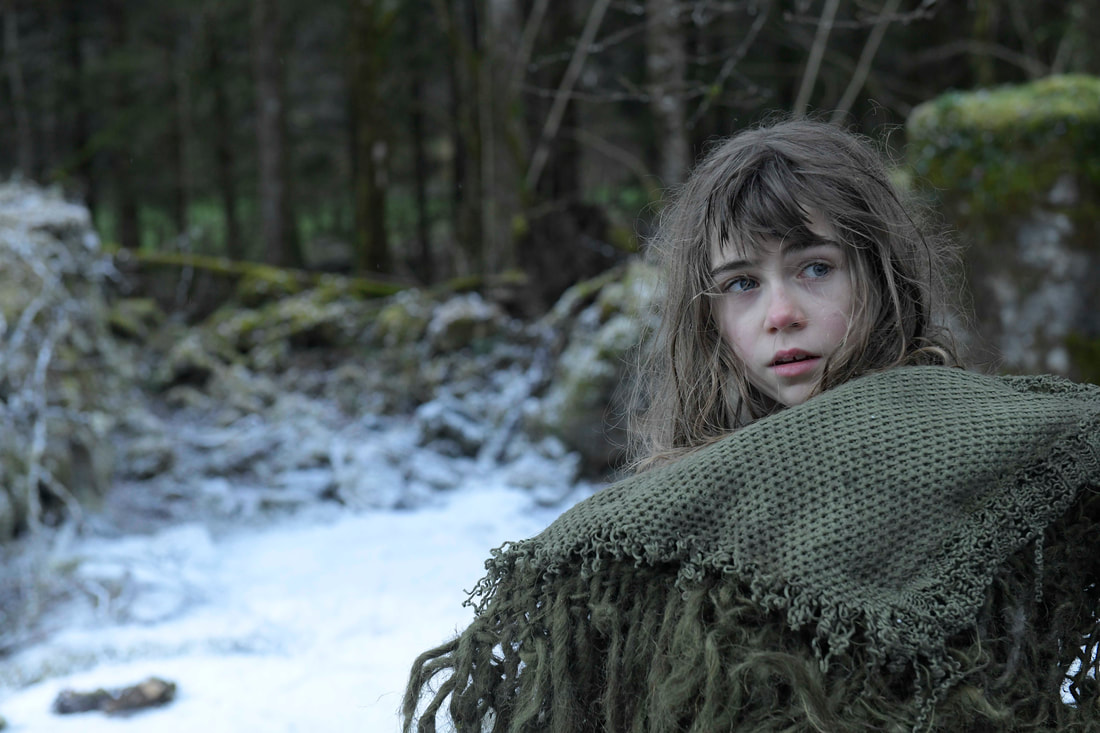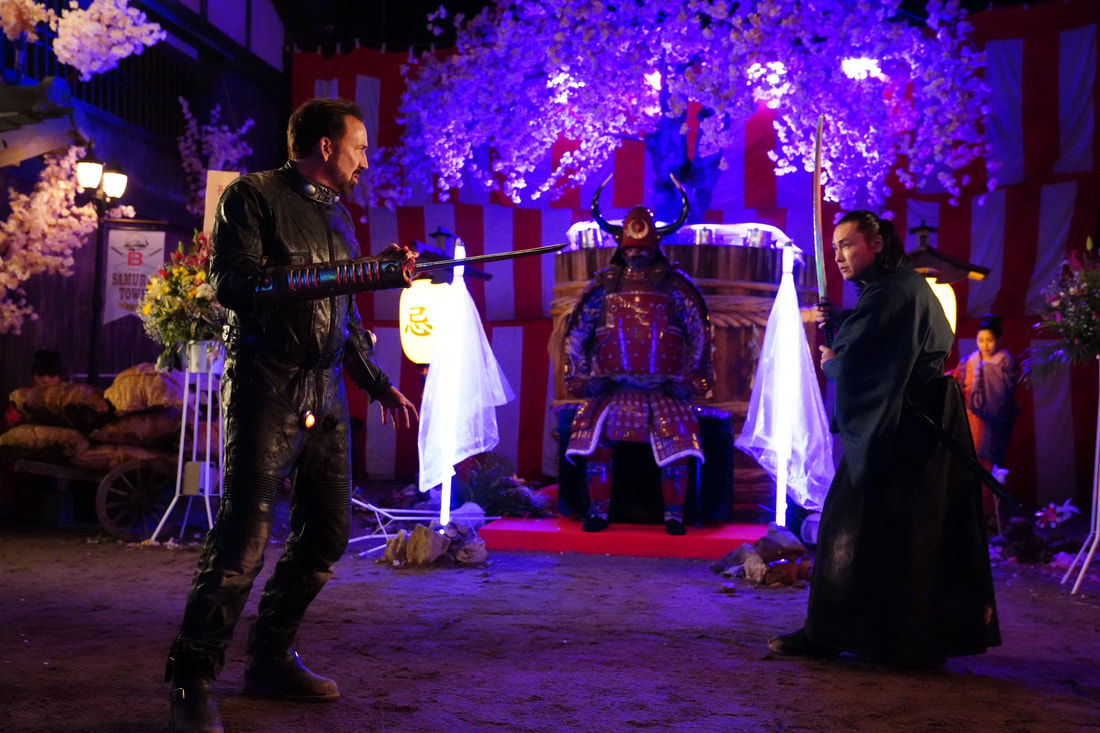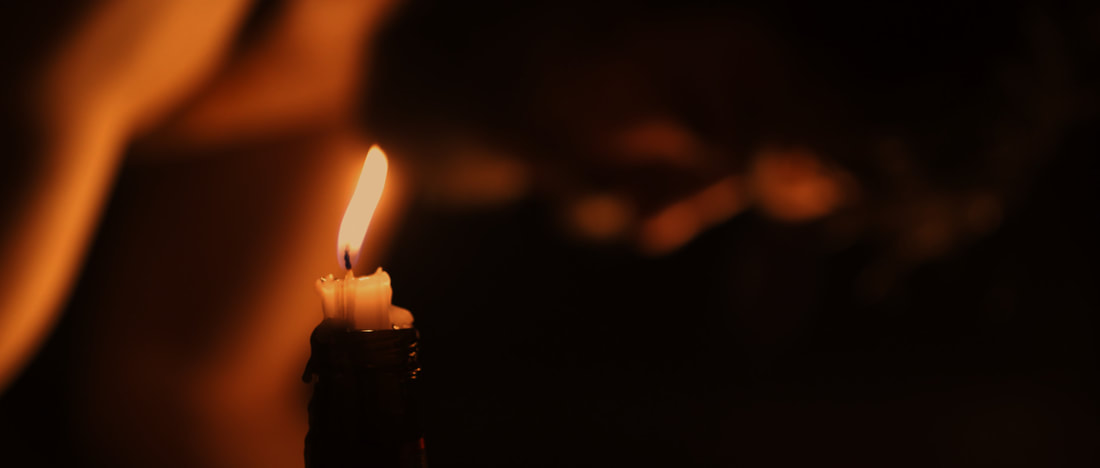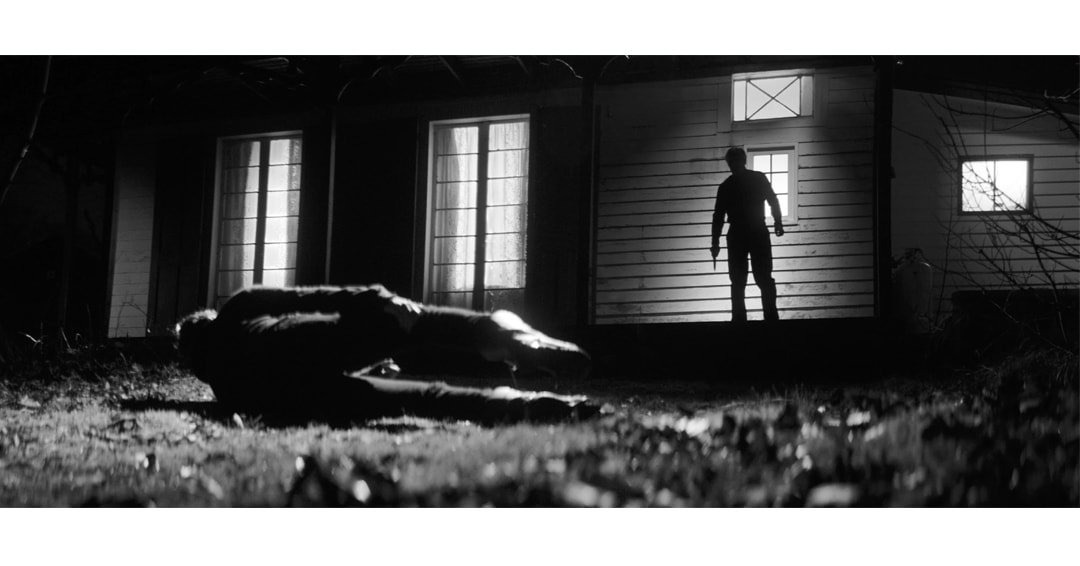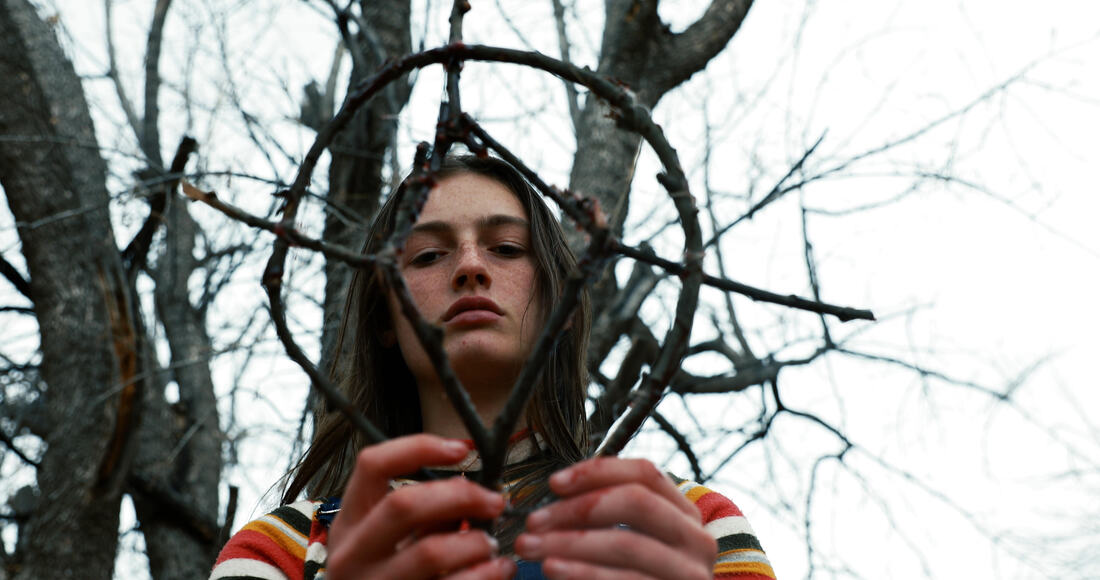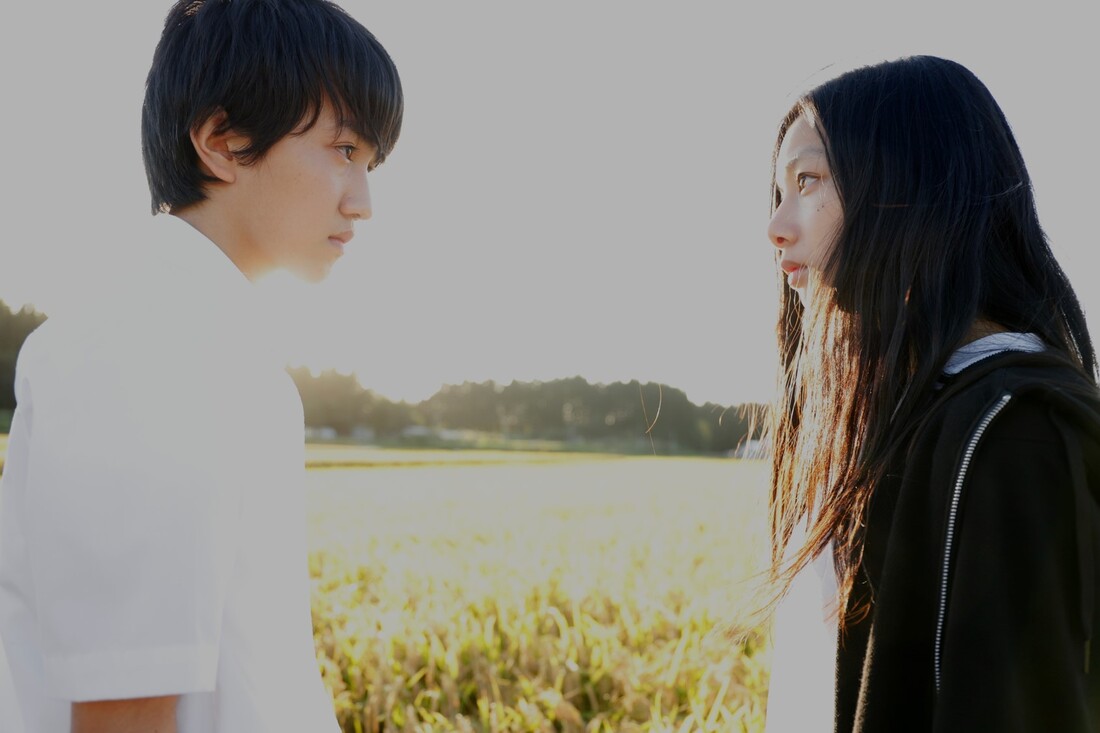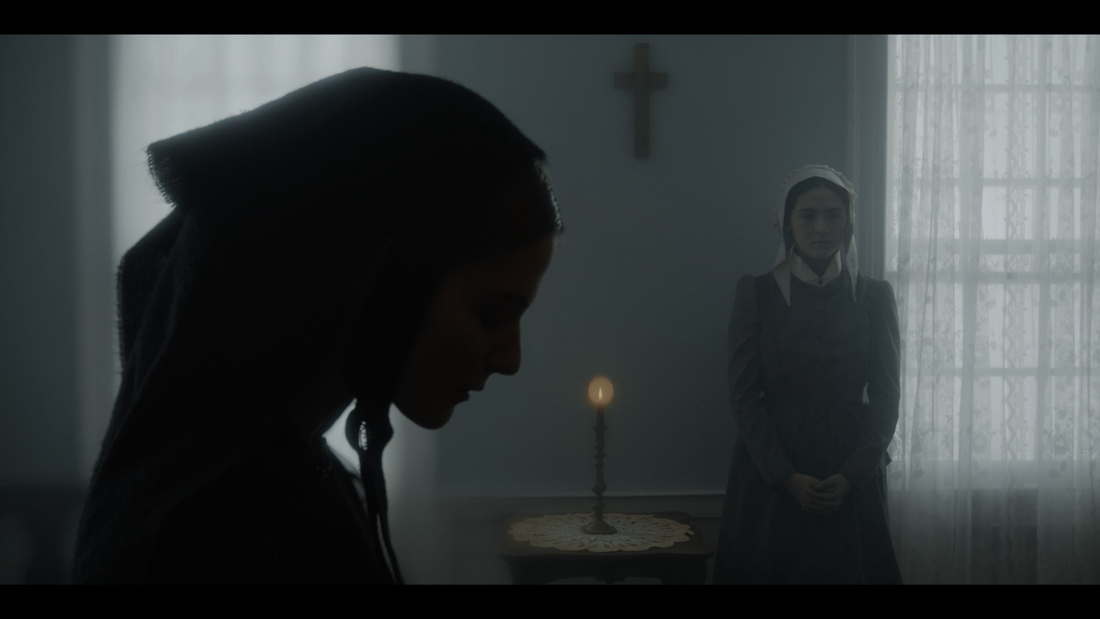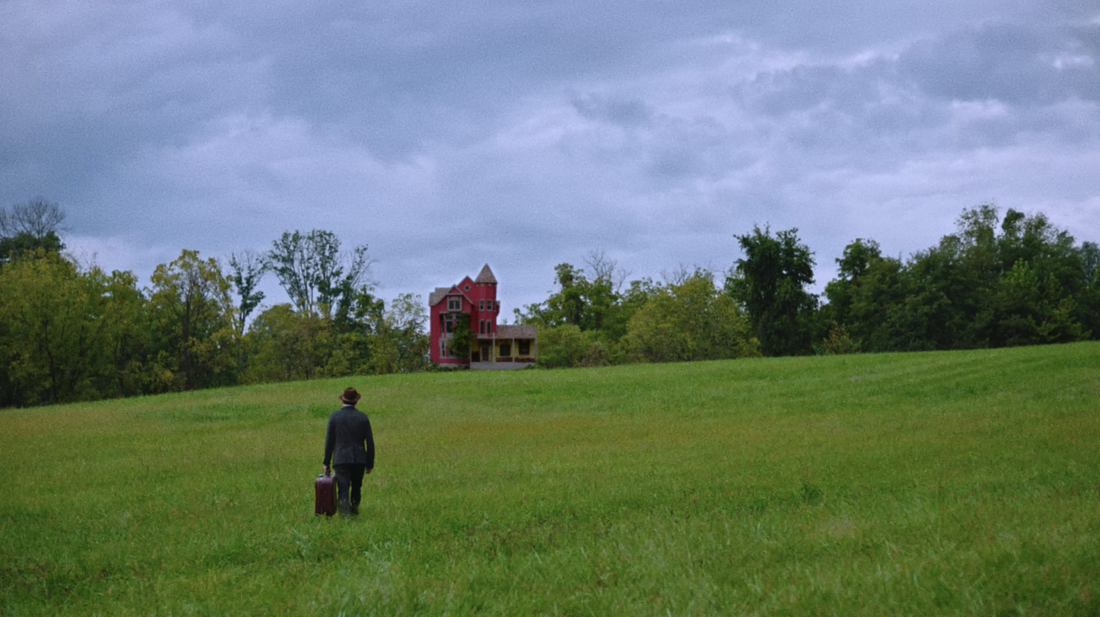|
We go to movie theaters to see blockbusters. We go to film festivals to see experimental movies — and we hope that these cinematic experiments will have something fresh and new to offer. In 2021, film festival goers from around the world were able to satisfy their appetite for something new with Beyond the Infinite Two Minutes, the first feature film from Japanese theatrical troupe EUROPE KIKAKU. The film’s fluid long takes, stylized comedy, and mind-bending plot impressed audiences at the Brussels International Fantastic Film Festival, the Fantasia International Film Festival, Arrow Video FrightFest, and Fantastic Fest. Starting Tuesday, January 25, 2022, you can watch Beyond the Infinite Two Minutes from the comfort of home. And might I suggest getting really comfortable for this one, because it just might make your brain hurt.
0 Comments
Originally published on Elements of Madness. It’s not every day we get the chance to chat with a loved one who has passed on. Skeptics would say that we never get that opportunity. If you’ve lost someone important to you, you’ve probably at least imagined having one last conversation with them, whether you believe in the afterlife or not. Imagining that conversation can provide a sense of comfort and closure that unexpected death does not grant us. But if you did get the chance to spend a day with someone you’ve lost, would it really be enough time to get the closure you need? Writer/director Daigo Matsui builds an elaborate fantasy based on that very question in his latest feature film, Remain in Twilight, which screened at the 2021 Fantasia International Film Festival. Based on Matsui’s play of the same name, the film provides a funny, sincere, and powerful take on grief and mortality.
Originally published on Elements of Madness. No country’s literature or filmography is short of romance stories. If a writer tells you they’re working on a piece about love, you’ll probably assume they’re talking about romantic love. We live in a culture that prioritizes romance and marriage, and it’s easy to forget that other types of love can be just as fulfilling. When Igor Legarreta and Jon Sagalá wrote a screenplay about a girl searching for love in her doomed existence as an immortal vampire, they decided not to turn their bloodsucker story into a romance. In All the Moons, which screened at the Fantasia International Film Festival in August, the young heroine discovers meaning in her wretched existence not from a romantic relationship, but from the love of a lonely man who becomes the parent she never had. Legarreta and Sagalá undertook a great challenge in choosing to write a vampire movie (at this point, what hasn’t already been done with vampires?), however, they made the most of this fantasy/horror sub-genre by exploring parent/child relationships and the question of consent in matters of life and death. The final product, directed by Legarreta, is an enchanting fantasy that wraps the joy, wonder, and melancholy of an entire lifetime into a single feature-length film.
There’s just no other way to put it: Sion Sono’s Prisoners of the Ghostland is just downright bizarre. But is it a bizarre work of genius, a bizarre flop, or something in between? This absurd dystopian action flick scores so highly in some categories and so poorly in others that it’s difficult to rate the film overall. The production design is outrageously fun, the cinematography is breathtaking, and Joseph Trapanese’s score is bursting at the seams with memorable motifs that work perfectly in a genre-driven movie. But the script? Let’s just say it’s a good thing Nicolas Cage has so much experience pushing bad dialogue to its limits. Thanks to Cage’s performance, Prisoners of the Ghostland falls into the “it’s so bad, it’s good” category. If you can accept the movie for what it is — a wacky celebration of genre created by an experienced director who has earned the right to do whatever he wants with his movies — you might not hate Prisoners of the Ghostland too much.
Do your worst childhood fears ever come back to haunt you? Does it feel like the monsters in your closet never left? Most of us outgrow our fear of shadows, monsters, and the dark, and we can now keep the closest door open at night and venture down the dark basement staircase with ease. But for Daphne and Wilson Shaw (Libby Ewing and Evan Dumouchel), the lead characters in Perry Blackshear’s When I Consume You, the haunting presence that plagued their childhood never left them alone. As the brother and sister grapple with the struggles of adulthood, a slew of mental health issues, and the lasting effects of a bad home life, they’re also haunted by a relentless stalker who has been watching them with malevolent yellow eyes since they were kids. After years of living in fear, Daphne and Wilson decide it’s high time to seek revenge.
Originally published on Elements of Madness. If you’re into Southern Gothic literature, you’ll go nuts over Mark O’Brien’s feature directorial debut, The Righteous, which screened at the Fantasia International Film Festival earlier this month. Granted, it was filmed in Canada and not the American South, but it sure does capture the dread, madness, religious anxiety, supernatural freakishness, and overall darkness of the genre. The Righteous tells the tale of ex-priest Frederic (Henry Czerny) and his wife, Ethel (Mimi Kuzyk), who are trying to make sense of their lives after they lose their only daughter. The couple’s mourning process comes to a halt one night when a stranger, Aaron (Mark O’Brien), shows up outside their home with a sprained ankle. Aside from his irreverent vocabulary and general secretiveness, Aaron is a harmless, mild-mannered kid. However, his presence casts a haunting shadow over Frederic and Ethel’s household, a shadow that will change their lives forever.
Originally published on Elements of Madness. From Rosemary’s Baby to False Positive, Psycho to Mommie Dearest, motherhood and the horror genre are a match made in heaven. The labyrinth of psycho-socio-political issues surrounding motherhood, pregnancy, and the mother-child relationship has truly found its home in horror cinema. One of the horror flicks showing at this year’s Fantasia International Film Festival, Hellbender, is not only about motherhood, but also stars a real-life mother-daughter duo. In fact, Hellbender was written, directed, shot, edited, scored, and produced by the four members of the Adams/Poser family: John Adams, Toby Poser and their two daughters, Lulu and Zelda Adams. All four family members also make an appearance in this occult horror film, with Zelda and Toby taking the lead roles. The family filmmaking feat is incredibly impressive, and Hellbender’s high production value showcases the family’s talents and creativity. Unfortunately, however, one little filmmaking misstep can bring a movie crashing down. In this case, that one misstep is the dialogue. While Hellbender is otherwise horrifically beautiful, the script and plot development leave much to be desired.
Originally published on Elements of Madness. For most people, the teen years come with a myriad of confusing emotions, drastic life changes, and embarrassing incidents. For Akira and Maki, the young protagonists of Yoichi Narita’s Follow The Light, those formative years also bring a number of upsetting changes to their small farming community, including a UFO and crop circle. These bizarre occurrences not only set them on intersecting paths, but symbolically carry the weight of their strange and explosive teenage emotions. Follow the Light, an official selection at this year’s Fantasia International Film Festival, is a wistful romance that ponders the many conflicts and emotions of adolescence.
Originally published on Elements of Madness. You don’t necessarily need complex characters or ingenious plot twists to write an engaging story. With strong imagery and a clear, palpable tone that physically affects your audience, you can transform the most overdone plot into a memorable tale. Writer/director Edoardo Vitaletti demonstrates that kind of storytelling craftsmanship in his feature debut, The Last Thing Mary Saw, which premiered at the 2021 Fantasia International Film Festival. Every aspect of this suffocatingly dark period drama, including its characters and plot, takes a backseat to its tone and mood. As a result, The Last Thing Mary Saw is bursting with palpable dread that will chill you to the bone.
Originally published on Elements of Madness. You don’t need a degree in film studies to make an educated guess about when a movie was made, or to at least place it within the right decade. It’s easy to recognize specific cinematic styles and themes from each decade of big-budget filmmaking, and it’s also fairly easy to date a movie based on its special effects. Innovative filmmakers have spent millions of dollars and years of their careers trying to make movies look “better” than those of yesteryear, particularly movies in the sci-fi, fantasy, action, and adventure genres. After all that work, it might seem counterintuitive for a filmmaker to purposely make a movie that looks like it was shot thirty or forty years ago. But co-writers and directors Albert Birney and Kentucker Audley did just that with their fantasy masterpiece Strawberry Mansion, a selection at the 2021 Fantasia International Film Festival. Strawberry Mansion fully embraces the visual style and effects of charming fantasy flicks from days past like The NeverEnding Story (1984) and Labyrinth (1986). It reminds us of a time when “special effects” and “set design” in a fantasy movie didn’t just mean CGI, bringing back fond memories of the worn-out VHS tapes that defined our idea of adventure.
|
"Our embodied spectator, possibly perverse in her fantasies and diverse in her experience, possesses agency...finally, she must now be held accountable for it." Categories
All
|

